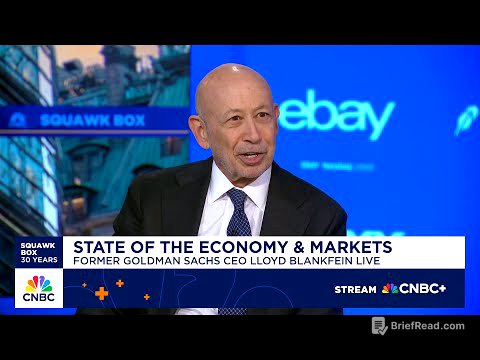TLDR;
This video discusses how to cultivate a wealthy mindset by overcoming limiting beliefs and adopting new perspectives on money and success. It identifies several common "broke thinking" patterns that hinder wealth accumulation and offers alternative, empowering mindsets to foster financial abundance and overall success.
- Overcoming scarcity mindset by focusing on solutions rather than limitations.
- Avoiding emotional spending by making intentional financial decisions.
- Embracing calculated risks and viewing failures as learning opportunities.
- Taking ownership of one's financial situation and avoiding victim mentality.
- Prioritizing long-term gratification over short-term pleasures.
- Actively engaging with one's finances and seeking financial knowledge.
- Believing that wealth is a tool for good and that one is worthy of abundance.
Scarcity Mindset: The Silent Wealth Killer [0:29]
The video asserts that a scarcity mindset, characterized by the belief that one can't afford things, settling for less, and accepting mediocrity, is detrimental to wealth accumulation. It contrasts this with a wealthy mindset, which focuses on finding solutions and opportunities rather than dwelling on limitations. The scarcity mindset stifles curiosity, drive, and the desire to learn and grow, leading to a focus on mere survival rather than problem-solving. The video emphasizes that one's financial success is limited by their belief system.
Emotional Spending: Wants vs. Needs [1:08]
The discussion addresses emotional spending, where purchases are made to fill emotional voids such as boredom, sadness, or loneliness. It argues that wealth is not built on impulse buys driven by fleeting emotions but rather on intentional, strategic, and purposeful spending. The video encourages viewers to consider whether their purchases are aligned with the person they are now or the person they aspire to become, emphasizing that every dollar spent is a vote for the future they want to create.
Fear of Risk: Playing It Safe is the Riskiest Move [1:43]
The video challenges the notion of playing it safe, arguing that it is often the riskiest approach. Fear is presented as a disguised form of paralysis. A broke mindset views failure as the end, while a wealthy mindset sees it as valuable feedback and an opportunity for growth. The video stresses that being too afraid to invest in oneself, one's business, or one's future can be more costly than taking calculated risks. The biggest risk is not taking any risks at all.
Victim Thinking vs. Ownership [2:16]
The chapter contrasts victim thinking with taking ownership of one's life. Victim thinking involves blaming external factors for setbacks, while wealthy individuals take responsibility for their situations, regardless of fault. The video underscores that no one is coming to rescue you, and it is up to each individual to build their own dreams rather than being a bystander in someone else's.
Short-Term Gratification: The Enemy of Lasting Wealth [2:48]
The video discusses the societal inclination towards instant gratification and how it hinders long-term wealth accumulation. Wealthy individuals understand the importance of playing the long game, delaying pleasure for purpose, and making sacrifices today to secure future freedom. Success requires discipline and consistency, making choices that will benefit one's future self.
Financial Avoidance: Knowledge is Power [3:21]
The importance of actively engaging with one's finances is emphasized. Ignoring one's bank account will not lead to financial growth. A broke mindset avoids looking at finances, while a wealthy mindset confronts them head-on with a plan. Clarity creates confidence, while ignorance creates stress. The video advises taking control of finances, educating oneself, understanding where money is going, and creating a plan to make it work harder.
Believing Wealth is Evil: Rewriting the Money Story [3:53]
The video challenges the belief that money is the root of all evil, stating that it is a limiting belief. Money is simply an amplifier, magnifying one's existing qualities. If someone is generous, money allows them to be more generous; if they are greedy, it amplifies that as well. The psychology of wealth begins with the belief that one is worthy of abundance and capable of handling it responsibly.









